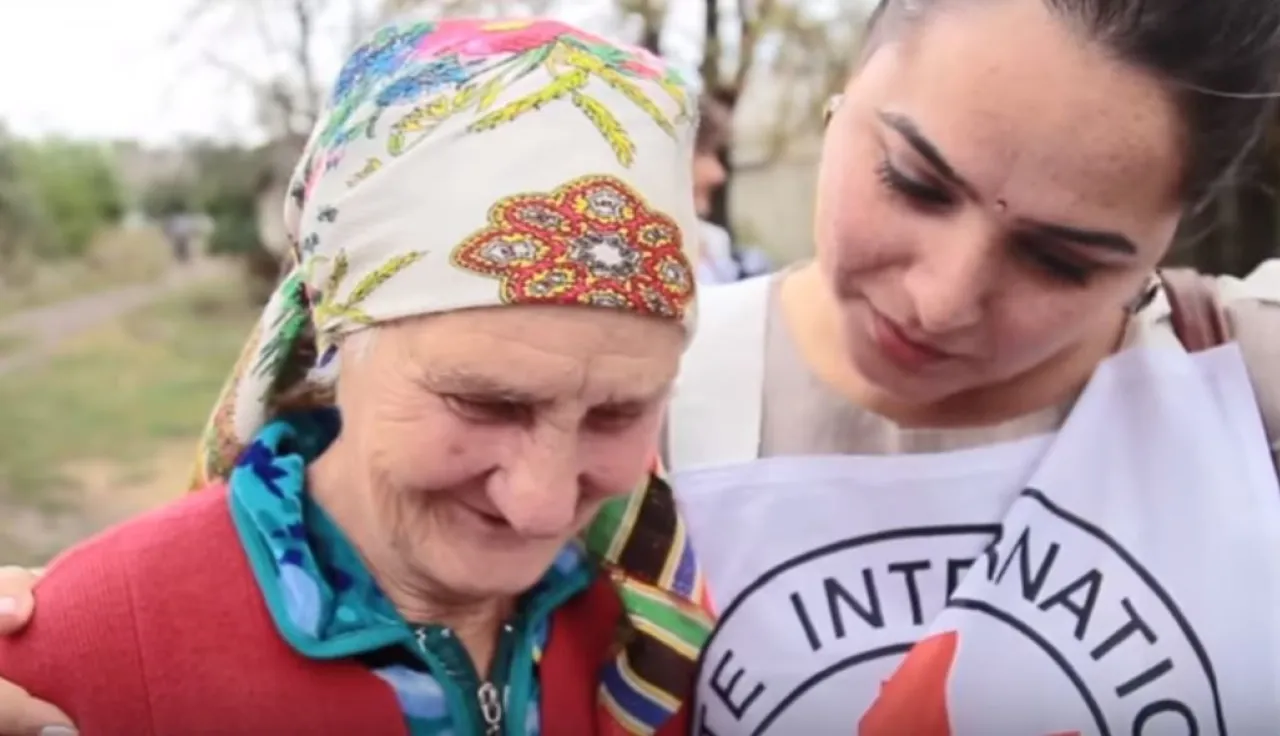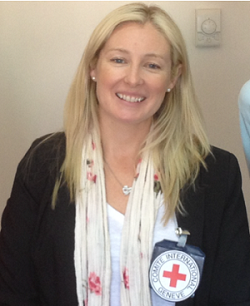Australia: The hidden cost of conflict

Responding to mental health and psychosocial needs
Conflict and violence destroy communities all over the world and can have a devastating impact on the mental health of millions of people. One of the most significant, yet often hidden, consequences of armed conflict and other situations of violence is their impact on the mental health of the people affected.
The ICRC Australia Mission recently sat down with Clinical Psychologist Dr. Sarah Miller to discuss why an appropriate response to mental health needs is necessary, and the ways in which the ICRC is working to respond in an evolving humanitarian landscape.
The impact of war on local systems and infrastructure is relatively well-known, but in what ways do conflict and violence affect the psychological wellbeing of individuals and communities?
War and violence can have a devastating impact on the mental health and psychosocial well-being of people. Those affected by conflict and violence are at risk of displacement, loss of loved ones and injury. They can experience psychological distress that greatly affects their everyday lives. Rates of mental health problems often increase during periods of war and conflict, and pre-existing disorders may also resurface or be exacerbated.
Exposure to violence, the disruption of social networks, the loss of and/or separation from relatives and friends, deteriorating living conditions, poverty and limited access to support can have both a short and a long-term impact on the well-being of individuals, families and communities.
Can you tell us about the ICRC's response to mental health and psychosocial support needs?
The ICRC's mental health and psychosocial support (MHPSS) programs work to address psychological and psychosocial difficulties that may be triggered or exacerbated by disasters, conflict or other situations of violence. MHPSS programs aim to reduce levels of psychological distress, improve functioning in daily life and provide coping mechanisms for people affected. The ICRC also runs a range of activities that work to develop social support networks and raise broader awareness.
MHPSS programs are designed to build local capacity to stabilise and improve the well-being of individuals and communities. This can be achieved through addressing psychological and psychosocial needs at individual, family and community levels; promoting coping mechanisms and preventing further mental health and psychosocial problems in the future.
Are there specific mental health and psychosocial support needs that are addressed by the ICRC's MHPSS programs?
The ICRC runs a number of programs around the world to respond to specific mental health and psychosocial needs, including working with:
- Families of missing persons: Many people go missing in war and situations of violence, causing anguish and uncertainty for their loved ones. Families of the Missing can experience emotional and social isolation and difficulties coping with the ambiguity of this kind of loss.
- Survivors of violence, including sexual violence: People in conflict situations may be exposed to many different types of violence. The impact of these experiences of violence on interpersonal relationships can be disabling and chronic. Survivors of violence can experience a wide range of problems such as depression, anxiety and trauma-related symptoms.
- People who have been wounded or acquired disabilities as a result of conflict or disaster: People in this situationrun a high risk of developing trauma-related symptoms such as shock, anxiety, anger, depression, despair, difficulties concentrating, insomnia, feelings of helplessness, numbness and flashbacks. People with new physical disabilities have to deal with specific challenges such as coping with life transitions and adjusting to changes in their family and social roles, as well as stigma and negative attitudes towards them from others.
- Current and former detainees as a result of conflict: In addition to the lasting physical reminders of torture and ill treatment, the psychological impact of being detained can be devastating. Although the effects vary considerably, the most common psychological problems are major depression and trauma-related disorders such as post-traumatic stress disorder (PTSD).
What about after a conflict or situation of violence? What role do MHPSS services play once the violence has stopped?
ICRC's MHPSS programs often begin at the onset of conflict and remain relevant throughout and after a conflict ends. In order to ensure longer-term support, the ICRC works on capacity building with local health workers and mental health care professionals to develop psychosocial support skills and facilitate peer support groups. This support enables communities to heal from a conflict situation and prepare better in case of such a scenario again in the future.
In settings where mental health needs are more severe, skilled and trained community actors, local psychologists and other mental health practitioners are trained to provide psychotherapeutic support. They are taught to identify symptoms of psychological distress and their impact on peoples' daily lives, as well as to explore individual and social resources and foster positive coping strategies.
In an ever-changing humanitarian environment, what do you see as being the main challenges to the ICRC's MHPSS response?
MHPSS is an emerging field of awareness in the humanitarian sector and at times this lack of sector awareness, especially in emergencies, can lead to oversights in allocating funds to treat mental health and psychosocial issues. Additionally, in some countries and cultures there is a stigmatised nature of mental health issues leading to difficulties in people asking for help. There are also challenges to addressing and overcoming the silence associated with sexual violence. These challenges are difficult to overcome and take time, capacity building and education to address.

Dr Sarah Miller is a Clinical and Forensic Psychologist who has deployed internationally with the Red Cross Red Crescent Movement to Pakistan, Norway, Philippines, Chechnya, Russia, Syria, Israel, Palestine and Papua New Guinea. Sarah is the only Australian Clinical Psychologist on the delegation list for deployment by the ICRC to provide mental health and psychological support in response to natural disasters and in conflict zones.



